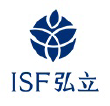On Uncertainty
Jun 7, 2025
The Class of 2025 graduated this week. It was an event of joy and sadness, sober reflection and anxious anticipation, celebration and expectation. Indeed, for the great majority of our graduates, ISF has been home for their entire schooling journey. As such, this formal moment of farewell was for all concerned both celebratory and poignant.
The final message I shared with the graduating class focused on uncertainty.
For the majority of our graduates, ISF has been a place of safety and certainty. Secure in the predictable routines of the timetable, the fixed geography of the school campus, the caring oversight of educators and guardians, and the comforting cocoon of a supportive peer network, there has been very little substantive uncertainty in the journey through school for most of our students. Perhaps the greatest uncertainty for most, and one that is about to be resolved, is the final IB Diploma examination results, due for release in early July.
What lies ahead, of course, is the tabula rasa of opportunity and choice in the adult world. Setting aside ways and means, academic outcomes, and personal predisposition, all of which will shape the future to an extent, there is still a strong degree of existential plasticity that surrounds each graduate; it is steeped in uncertainty and possibility.
One of the great theoretical breakthroughs in the field of physics in the 20th century was the Uncertainty Principle, first proposed by one of the pioneers of quantum mechanics and Nobel Laureate, Werner Heisenberg. It focused on the idea of imprecision or indeterminacy in the universe and as such was criticized or rejected by many who clung to the idea of a neatly ordered, and rigidly structured reality. For many years I have been intrigued by the idea that we can only know in part but can never know everything about the physical universe. The very act of trying to observe a phenomenon introduces an element of uncertainty that renders our pursuit of precision pointless. Heisenberg taught us that we abide in uncertainty; we must live with the disturbing truth that we cannot know everything about anything.
As they begin to navigate their own post-schooling life journey, our graduates will need to embrace the all-pervasive element of uncertainty in their personal and professional lives. While some of the events that await are predictable, some are probable, and others are possible, there are so many more that are shrouded in the mist of uncertainty. Setting aside luck or good fortune, success in life, for the most part, is closely associated with the effective management of uncertainty. Those who can live peacefully with the ambiguity of multiple choice, or sleep soundly in the face of an indeterminate future, are far more likely to excel in their chosen endeavors. These ‘masters of uncertainty’ leap into the unknown with faith, not blindly, but with confidence and agility, believing that all things will work themselves out for the best. There are some, however, paralyzed by indecision, or fearful of chance, for whom uncertainty poses an existential threat to wellbeing and success in both life and work. They need to know before they commit. They cling to the precipice at the very edge of certainty, unable or unwilling to step off into the unknown. How do we help those so afflicted leave the safety of certainty to embrace the unknown?
Our formal systems of education tend to focus on student mastery of the correct answer to every question. These are not typically places that value the question over the answer. Indeed, schools, like students, are evaluated and judged on the certainty of testing metrics. While educators may assert the importance of inquiry, a measurable outcome is essential to verify success. As such, formal education is not always well suited to nurturing a robust tolerance for uncertainty. And yet this very tolerance is a life-skill that, in my view, is essential for success in the months and years that lie ahead for our graduating class.
Ultimately, getting the right answer to a known question is unremarkable. It is uncertainty that powers our search for meaning, a search that is the very heart and soul of learning. In a world that seems fixated on the certain, the predictable, and the known, there is a place beyond what we can see and touch, where creativity and imagination are not constrained by the right answer, but are empowered by the right question.
Dr. Malcolm Pritchard
Head of School
